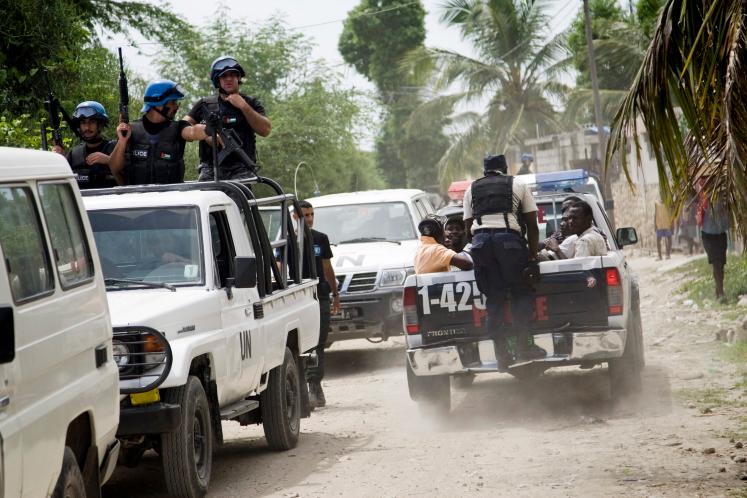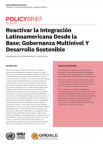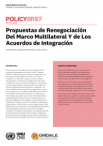Transnational organized crime and associated illicit activities are a significant driver of conflict and violence globally, and can be a particular issue in conflict-affected and fragile States. United Nations Secretary-General António Guterres has highlighted the escalating threat posed by organized criminal groups and their role in destabilizing societies and threatening global security. His call for a "New Agenda for Peace" emphasizes the need for robust multilateral strategies to counter it.
This policy brief takes stock of past multilateral efforts to counter transnational organized crime, drawing on case studies on these dynamics in the Central African Republic and Mali (forthcoming later 2024), as well as consultation with other global experts and research on these dynamics in conflict-affected and fragile States. It considers future directions for a more concerted and effective response, including better tailoring and coordinating tools within peace operations, sanctions regimes and mediation strategies; as well as strengthening monitoring and watchdog efforts; and better accounting for these and other political-economy issues within peacebuilding and prevention.
Access "Multilateral Responses to Transnational Organized Crime and Conflict: Global Policy Considerations and Future Directions" here.
This policy brief also drew from two case studies of multilateral efforts to counter transnational organized crime in two conflict settings. The case study on Mali, published in September 2024, explores some of the challenges to countering transnational organized crime in Mali, focusing primarily on the United Nations Multidimensional Stabilization Mission in Mali (MINUSMA), but also considering the challenges faced by other multilateral actors and initiatives.
The case study on the Central African Republic, published in May 2025, considers 5 significant trafficking and criminal sectors within the Central African Republic and their linkages with conflict dynamics. It also considers a range of policy responses, ranging from security responses, transnational regulatory and certification mechanisms related to gold and diamonds, disarmament and weapons tracking and registration initiatives, and other efforts by the Government, its multilateral partners and the United Nations Multidimensional Integrated Stabilization Mission in the Central African Republic (MINUSCA).
Watch this space for further case studies and research in this area.
Suggested citation: Erica Gaston, Fiona Mangan. Multilateral responses to transnational organized crime and conflict : UNU-CPR, 2024.




